A tap water filter is not only beneficial for your health and the environment but also a valuable upgrade for your kitchen. Wondering if a tap water filter is necessary for you? We’ll address this query and delve into the mechanics of how water filters function, along with detailing the contaminants they eliminate from your water.
Discover the process behind the operation of kitchen tap filters, their benefits once installed, and the straightforward installation process, often as simple as attaching a filter directly to your tap.
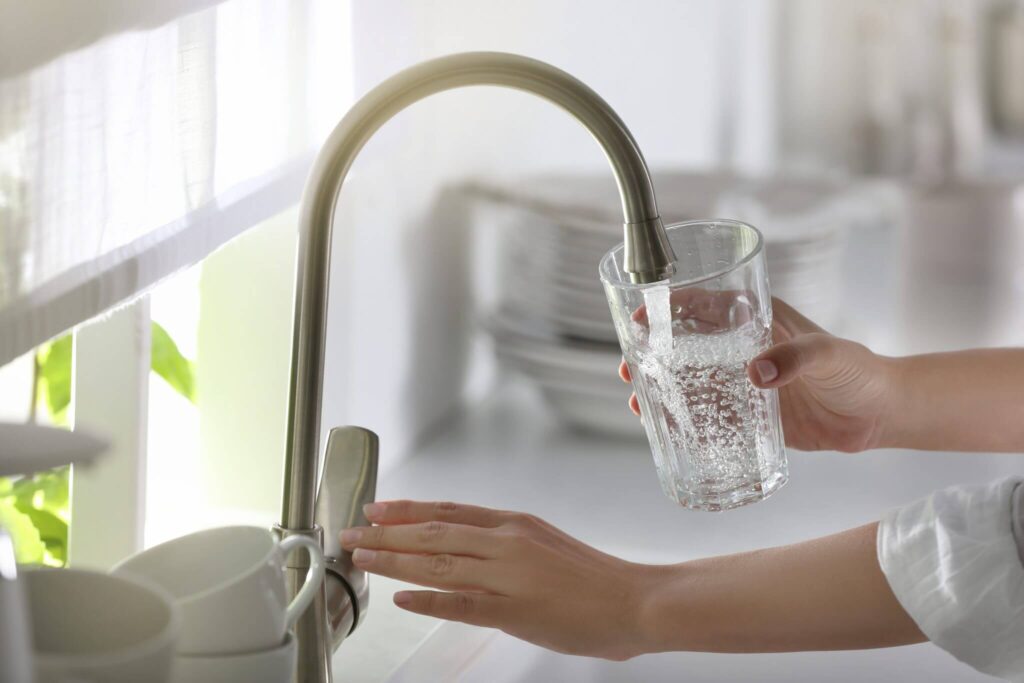
A water filter is an essential tool for purifying tap water, removing a range of impurities, including harmful chemicals, to improve both its taste and smell. Let’s delve deeper into the different types of water filters available for your kitchen.
- Tap/Faucet Filters: These filters are a standout choice for their ease of installation and universal compatibility with 99% of kitchen faucets. They are designed to be unobtrusive, conserving kitchen space while providing efficient water filtration. The installation process is straightforward, typically requiring no tools or specialized knowledge. While they may slightly reduce water flow, the convenience and effectiveness of tap/faucet filters make them an excellent kitchen accessory. Their compact design ensures they fit neatly on your faucet without altering the kitchen’s aesthetics.
- Filter Jugs: Ideal for small-scale use, these jugs are filled manually and stored in the fridge. They are perfect for households that need a quick and portable solution for filtered water. However, they have a limited capacity and require regular refilling, which might be inconvenient for larger families or frequent use.
- Under-Sink Filters: These systems offer enhanced levels of filtration compared to other methods. Installed under the sink, they remain out of sight, keeping your kitchen counters clutter-free. They are more complex to install but provide a more thorough filtration process, removing a wider range of contaminants. This makes them suitable for households prioritizing comprehensive water purification.
- Integrated Tap Systems: For those seeking a seamless solution, integrated tap systems combine filtered water with your existing hot and cold water supply. You can either add a dedicated filtered water tap alongside your current faucet or upgrade to a kitchen mixer tap that combines all three options—hot, cold, and filtered water. This system is ideal for kitchens where space and aesthetic continuity are priorities.
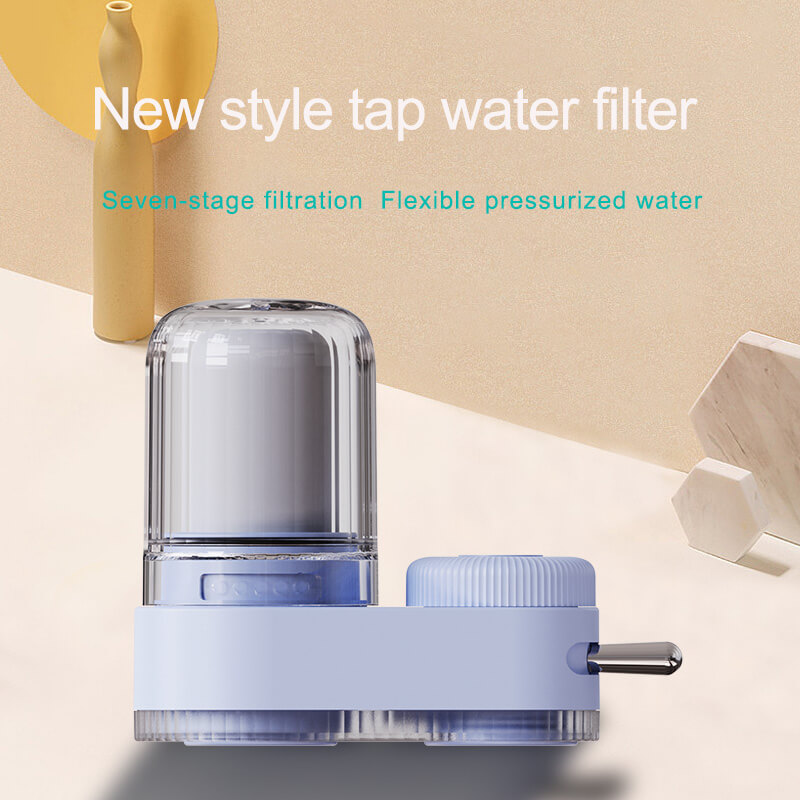
Each of these water filtration solutions offers unique benefits, catering to different needs and preferences. The tap/faucet filter, with its universal compatibility and ease of installation, stands out as a versatile and practical choice for most kitchens, offering a balance between convenience and effective water purification.
How Do Water Filters Enhance Your Tap Water?
Water filters are ingenious devices that employ a combination of chemical reactions, gravity, and physics to purify tap water, removing undesirable impurities and chemicals. Let’s explore the various techniques commonly used in water filtration systems.
1. Activated Charcoal (Carbon Filtering)
The most popular method for filtering tap water is through activated charcoal, also known as carbon filtering or pre-filtering. This process utilizes the adsorptive power of carbon. The charcoal’s carbon acts as a sponge, absorbing chemicals such as pesticides, chlorine, and certain microplastics. This leaves the water clean and safe for consumption. Carbon filters are especially effective with low-pressure and cold water, making them ideal for household use. A typical carbon filter can purify approximately 2,000 liters of water and usually lasts around two months. Many modern systems feature built-in alarms to indicate when the filter needs replacing, ensuring continuous water quality.
2. Reverse Osmosis
Another advanced method is reverse osmosis. This process involves forcing tap water through a specialized membrane with tiny pores, followed by multiple filtration stages. It is one of the most comprehensive methods for water purification, capable of removing a wide range of contaminants. However, it’s important to note that reverse osmosis systems can be costly and less efficient, with only about 70% of the tap water being purified. This results in increased water usage, which may be a consideration for some households.
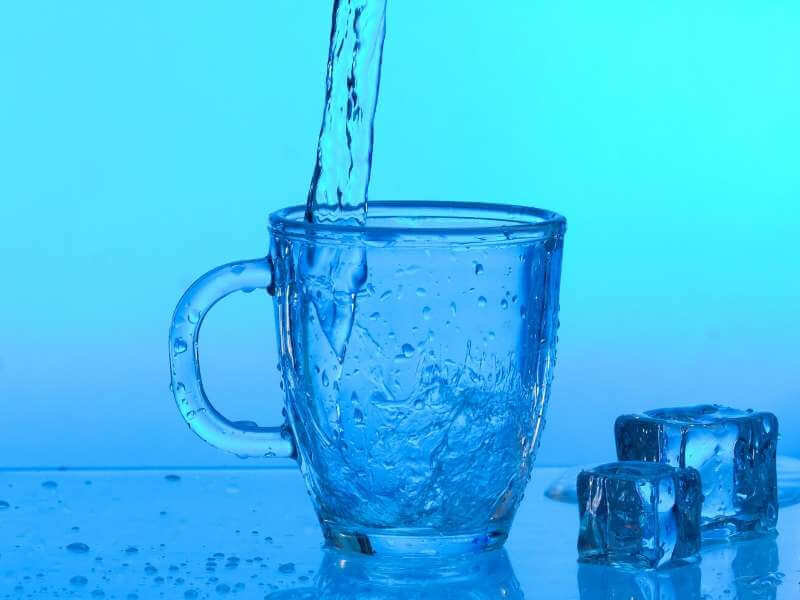
3. Other Filtration Methods
While activated charcoal and reverse osmosis are the most common in homes, other methods like ion exchange, mechanical filtration, and ozone treatment are also available. However, due to their cost and the size of the equipment required, these methods are less popular for home use. Ion exchange and ozone filters are typically used for specific purposes such as softening hard water, rather than for general water purification or taste improvement.
Choosing the Right Water Filter
When selecting a water filter, consider the specific needs of your household. For everyday use and improved taste, activated charcoal filters are an excellent choice. If you’re looking for a more thorough filtration system and are willing to invest, reverse osmosis might be the way to go.
Understanding how these filtration methods work can help you make an informed decision about which system best fits your home, ensuring you enjoy cleaner, healthier, and better-tasting water.
Does Your Water Need Filtering?
Global Standards and Variations in Tap Water Quality
While the United Kingdom boasts some of the world’s cleanest tap water, meeting stringent requirements for drinking, cooking, and washing, the scenario varies significantly across the globe. In the UK, about one-third of the tap water in England originates from underground sources like aquifers, while the remainder is sourced from reservoirs, lakes, and rivers. Scotland and Northern Ireland primarily rely on lakes and rivers for their water supply.
However, the journey of tap water from its source to our homes is a complex one, with standards and practices differing internationally. Each country has its own regulations and standards for treating tap water, resulting in varying levels of purity and safety.
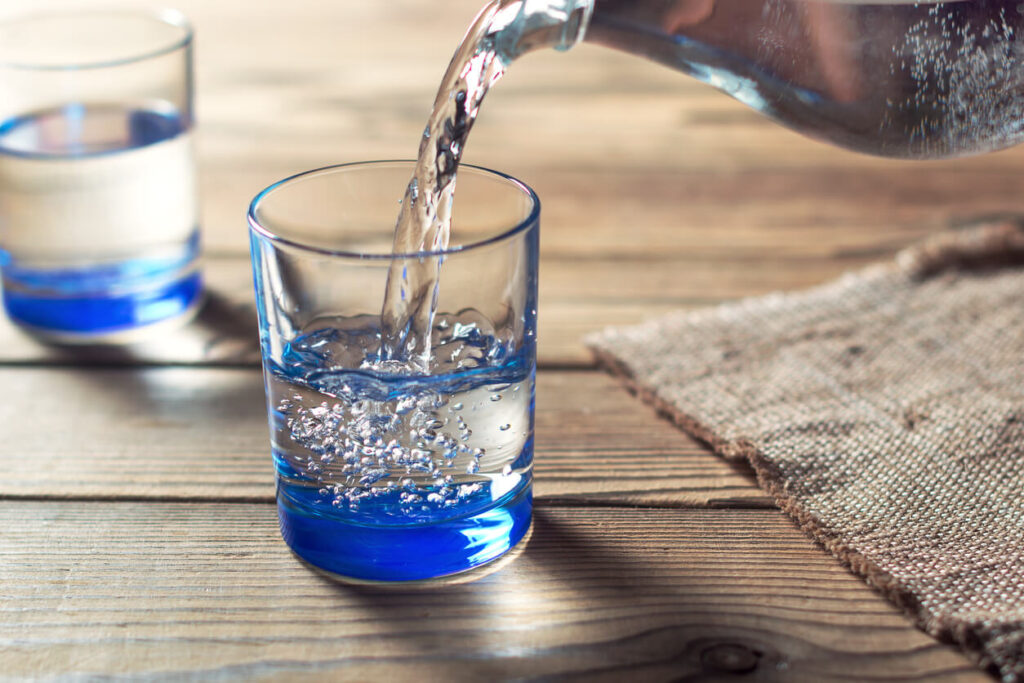
Water Sources and Treatment Across the Globe
In many parts of the world, including regions of Europe, North America, and parts of Asia, tap water undergoes rigorous purification processes, ensuring it is safe for consumption. These processes often include multiple stages of chemical and physical treatments to remove contaminants and pathogens.
Conversely, in some countries, particularly in parts of Africa, South America, and certain regions in Asia, tap water may not always meet the same high standards due to varying environmental conditions, infrastructure challenges, and differing regulatory frameworks. In these areas, tap water might contain excess chemicals, hard metals, or other contaminants, necessitating additional purification for safe consumption.
Refining Tap Water for Improved Quality
Even in countries with high water quality standards, there is still room for improvement. Many households globally choose to refine their tap water further to eliminate residual chemicals, hard metals, and to enhance the taste and smell. This is achieved through various water filtration systems, like activated charcoal filters, reverse osmosis, and other purification technologies.
Understanding Global Water Quality
It’s important for individuals to be aware of their local water quality and the standards that apply in their country. Depending on where you live, the need for additional water filtration and purification can vary. By understanding these differences, households around the world can make informed decisions about water consumption and the potential need for additional water treatment methods.
What Does A Water Filter Remove?
Understanding the Efficacy of Water Filters in Eliminating Contaminants
Water filters are essential tools in enhancing the quality of tap water. Capable of removing up to 80 different chemicals, along with silt and sediment, they play a crucial role in ensuring clean and healthy water. Despite the high regulation and safety of UK tap water, chemical levels and pollution can fluctuate due to various factors, including environmental changes and unforeseen accidents. Using a water filter provides the assurance that your water remains pure and safe, consistently removing a wide array of substances.
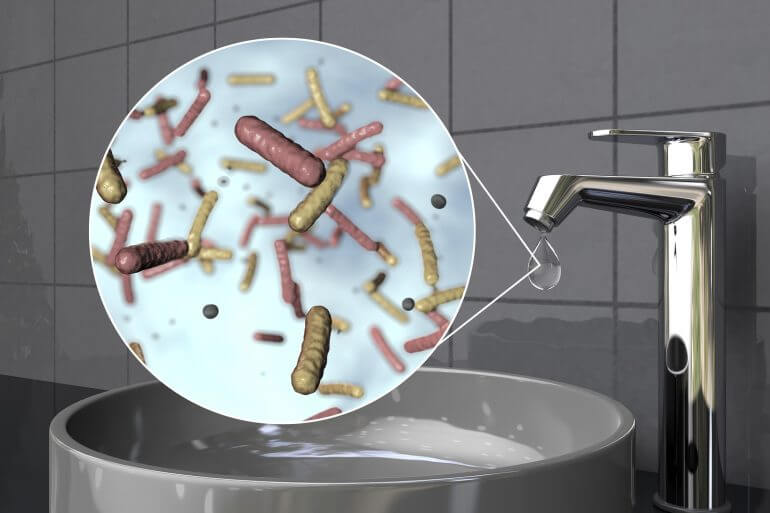
Key Contaminants Removed by Water Filters
- Chlorine: Commonly used as a disinfectant in UK water supplies, chlorine levels are maintained within World Health Organization guidelines. However, many people are sensitive to the taste and smell of chlorine in their water. Water filters effectively reduce the presence of chlorine, resulting in healthier and better-tasting water.
- Fluoride: While fluoride is a natural mineral added to some drinking water to prevent tooth decay, excessive fluoride can lead to fluorosis in children, affecting tooth enamel. Water filters can significantly reduce fluoride levels, ensuring a balance that is beneficial for dental health without the risk of fluorosis.
- Lead and Limescale: Older homes, especially those built before the 1970s, may still have lead pipes or lead solder in the joints, posing a risk of lead contamination. Lead exposure can lead to serious health issues, including neurological problems and learning difficulties. Water filters are effective in removing about 95% of lead from water, bringing it within safe levels. Additionally, they also tackle limescale, common in hard water areas, which can affect the taste and appearance of water.
The Role of Water Filters in Home Safety
Investing in a water filter is not just about improving taste; it’s a step towards safeguarding your family’s health. With the capability to remove significant amounts of harmful substances from tap water, water filters ensure that the water in your home remains safe and pleasant to drink at all times.
Check Your Local Water Quality
It’s advisable to check local water quality reports or use resources like fluoride maps to understand the specific contaminants present in your area. This information can guide you in choosing the most appropriate water filter for your needs.
What is hard water?
Dealing with Hard Water: A Global Challenge
Hard water, characterized by high levels of calcium and magnesium, is a common issue in many parts of the world. While it’s not considered a health hazard, hard water can lead to several inconveniences and inefficiencies in daily household tasks. It often imparts a bitter taste to the water and leaves a hard, white residue of limescale in pipes, kettles, and other appliances. Furthermore, hard water can reduce the effectiveness of shampoos and detergents, leading to dry skin and hair.
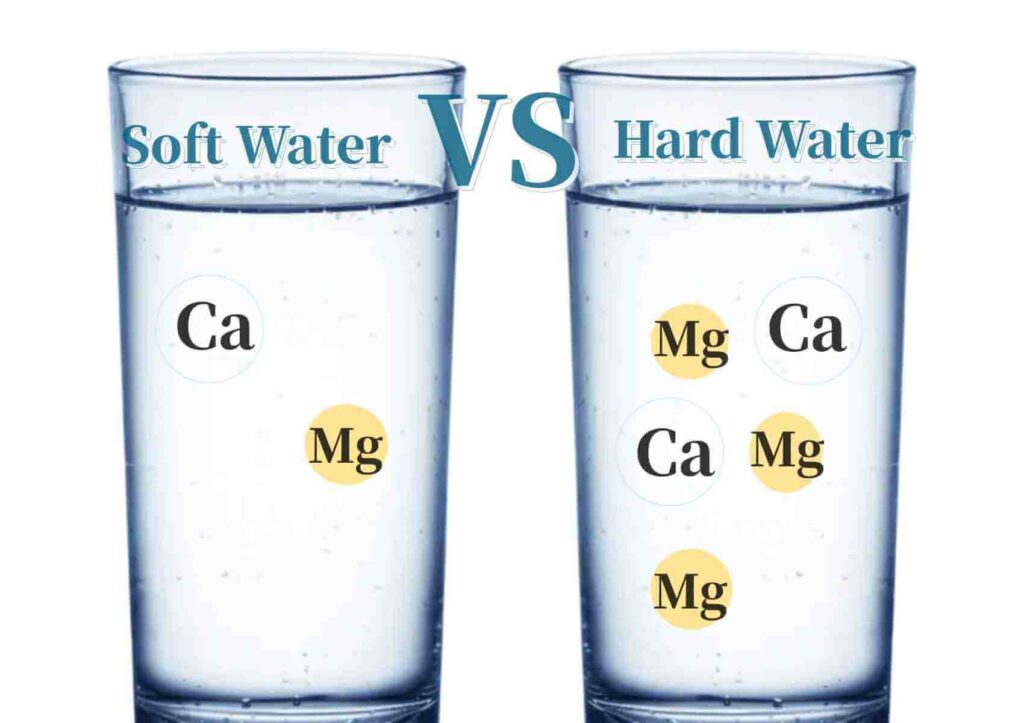
Solutions for Hard Water
- Whole-House Water Filters: Installing a water filter, such as an ion-exchange or ozone filter, at the main water supply of your home can effectively remove limescale. This not only improves the taste of your water but also enhances the efficiency and longevity of water-using appliances like washing machines, dishwashers, and kettles.
- Shower Filters: A shower filter specifically targets the removal of limescale from shower water. This not only prolongs the life of your shower unit and head by preventing limescale buildup but also provides softer water for better skin and hair health.
Maintenance of Water Filters
Regardless of the type of water filter you choose, regular maintenance is key. It’s recommended to replace the filters every few months to ensure consistent water quality and optimal performance of the filtration system.
Hard Water Across the Globe
The presence and impact of hard water vary globally, depending on geographical and environmental factors. It’s important for households to identify the level of hard water in their area and choose appropriate water treatment solutions to tackle the specific challenges they face.
Other Benefits
Exploring the Multifaceted Benefits of Water Filters
Beyond the primary advantage of ensuring clean water for drinking and cooking, water filters offer a multitude of additional benefits that can positively impact both your lifestyle and the environment.
Cost-Effectiveness
One of the most immediate benefits of using a water filter is the cost savings. Filtering your own water at home is significantly more economical than the recurring expense of purchasing bottled mineral water. This makes water filters an excellent investment for households looking to reduce their daily living costs while still enjoying high-quality water.
Environmental Impact
Another important aspect is the environmental benefit. By relying on a water filter, you substantially reduce your consumption of bottled water. This not only decreases the demand for plastic bottles, which are a major environmental concern, but also contributes to a lower carbon footprint. The reduction in plastic waste and the decrease in transportation emissions associated with bottled water are significant steps towards a more sustainable lifestyle.
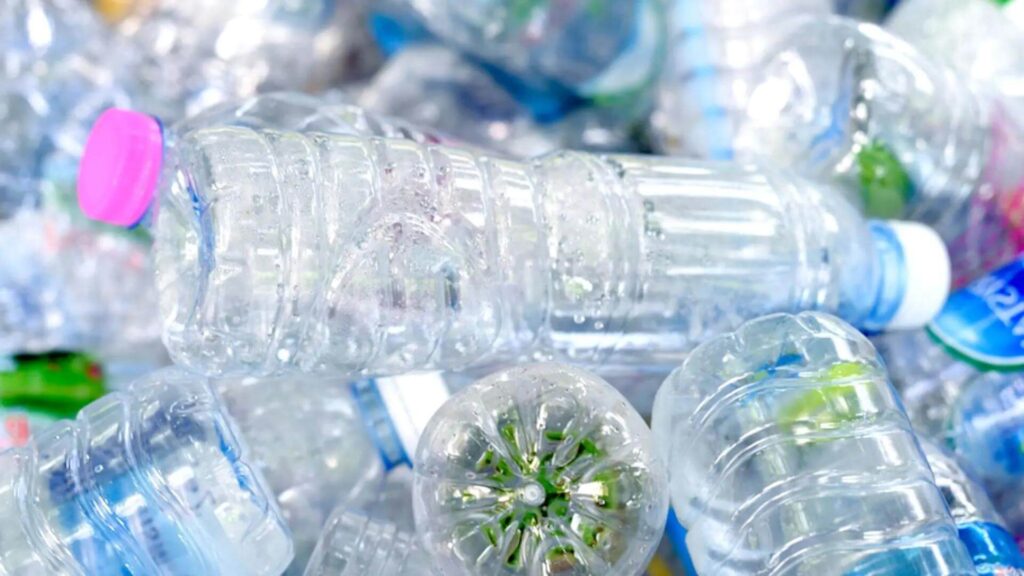
Enhanced Flavor for Beverages
Furthermore, those who enjoy tea and coffee will find that a water filter can markedly improve the taste of their beverages. The removal of impurities and chemicals from tap water can enhance the natural flavors of these drinks, leading to a more enjoyable brewing experience. Water filters can bring out the subtle flavors in tea and coffee, making them taste fresher and more aromatic.
A Holistic Approach to Water Consumption
Investing in a water filter is more than just a choice for cleaner drinking water; it’s a commitment to a more economical, environmentally friendly, and quality-focused lifestyle. The advantages extend beyond the kitchen, influencing various aspects of daily life and contributing to a healthier, more sustainable world.
Conslusion
Integrating a tap water filter into your home is a wise decision that offers substantial benefits. This simple addition to your tap provides an essential layer of protection, ensuring that the water you consume is not only cleaner and safer but also more palatable. The enhancement in water quality achieved through filtration can significantly improve your overall drinking experience. Furthermore, the investment in a water filter is relatively modest compared to the myriad of advantages it brings. From health benefits to environmental sustainability and cost savings, a tap water filter is a small change that can make a big difference in your daily life and wellbeing.
